|
|
|
SYNBRA - Thin Wall
Copolymers
Chemically Resistant, High Temperature
Performance
(blue text are active links)
(Adobe
Reader Required)
| Images: |
|
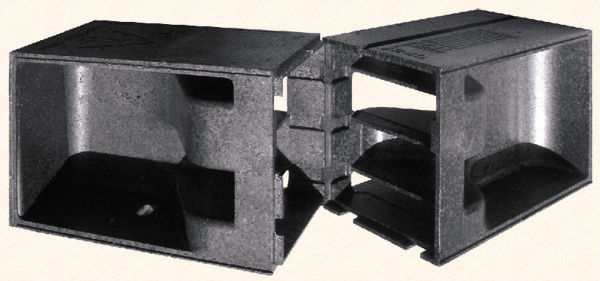 |
|
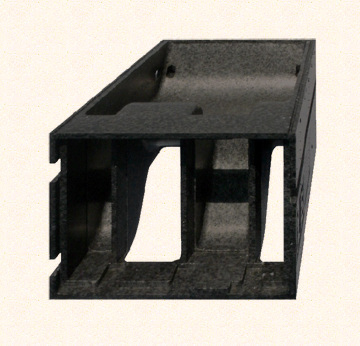 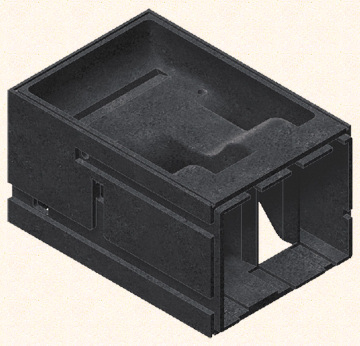 |
|
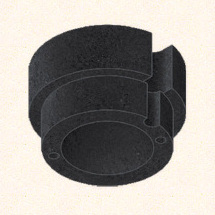 |
| . |
Tempo's unique thin wall molding
methods allow processing new High Temperature expandable engineering resins
where tailored mechanical and temperature performance, functionality and light
weight are critical requirements. These foam materials offer the designer
excellent strength-to-weight ratios.
Tempo specializes in complex shapes with molded-in functionality such as metal
and plastic inserts. No draft conditions and molded undercuts are possible
with Tempo's self contained mold design.
Tempo can mold wall transitions and intersections without the sink problems
common to injection molding.
Now available in North America, Synbra Technology bv offers Hi Temp PPO/EPS
material, produced in Holland, these HT products are based on NORYL©
Resin supplied by SABIC Innovative Plastics.
Applied as expandable foam, the HT-EPS is a replacement for Dytherm/Caril/GECET
and finds application in specialty floats, steam sterilisable trays, insulation,
lightweight supports, and for automobile parts that require good energy
absorption properties, heat resistance and dimensional stability.
The Synbra Technology bv material is unaffected by alkali solutions and is
resistant to mineral acidic acids and their water solutions and diesel fuels.
Synbra Technology bv HT resin bum rate will satisfy the standards set forth in
MVSS 302. |
| . |
|
Tempo’s patented
Dry Molding Process is ideal for thin wall molding (under 6mm thickness) for
SYNBRA Hi Temp which is a very stiff material, not smooth flowing inside mold geometry.
Tempo’s Open Architecture mold construction allows for molded undercuts and
no-draft conditions where designs require. Customers save significant mold costs
as Tempo machinery accommodates single and double cavity molds for early
production phases, with additional capacity added as needed.
SYNBRA Hi Temp is chemically resistant to virtually all aqueous media including
dilute acids and alkalis. SYNBRA Hi Temp is resistant to water-miscible alcohols
such as methanol, ethanol, i-propanol and also to silicone oils.
SYNBRA Hi Temp has successfully tested for 30 days immersed in #1 Diesel (kerosene),
it has limited resistance to paraffin oils, #2 Diesel and Vaseline. These
substances may attack the surface of foamed materials after long-term
contact and may cause deformation through shrinkage.
Click (synbra_eer_info.pdf
- 2577kb) to see a table showing resistance of SYNBRA Hi Temp to the most common
chemical substances.
Click the Lab testing reports for
SYNBRA Hi Temp and
Static Dissipative
SYNBRA Hi Temp. |
| . |
| Links: |
| 1)
Specification Sheet: EPS HT Grades - September 2012 |
2)
High Temperature Foams for Design (pdf
2200kb)
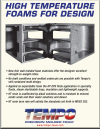 |
| . |
| Details on all four exterior walls
require each side wall of the mold to retract. Heat controls for every
mold segment allow adjustment for nice surface finish.
3mm wall thickness for interlocks on these mating duct sections. SYNBRA
Hi Temp
samples on right, high density UL-94 EPS on left. |
|
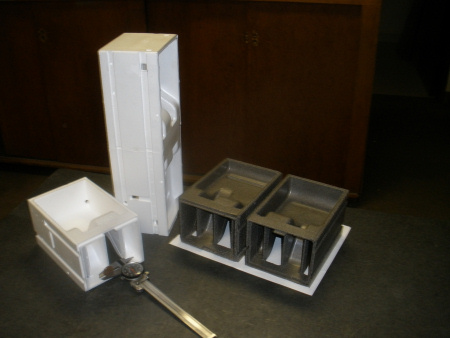
Rittal Corp:
Press Release 08-2009
Rittal Corp:
Industrial News
2009 - Thermoelectric Coolers
Open Architecture Mold Design
- Video
|
|
| |
High temperature floats for Inspiron Respiratory
bedside humidifier. Evaluation of foamed polycarbonate and NOREL™ showed
excessive weight. Tempo provided SYNBRA Hi Temp F-100 copolymer foam solution half
the weight of the foamed injection resins.
These floats are sized 40.6mm x 22.8mm x 6.3mm (1.6” x .9” x .25”), with 5mm
thick neck to fit into slide holder, (note orange valve attached to slide holder
in photo) |
|
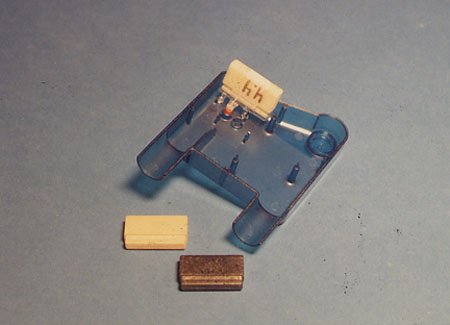 |
|
| |
|
This four cavity aluminum
mold saved Inspiron Respiratory $thousands compared with the injection
molds made for testing floats molded from high temperature foamed
injection resins. |
|
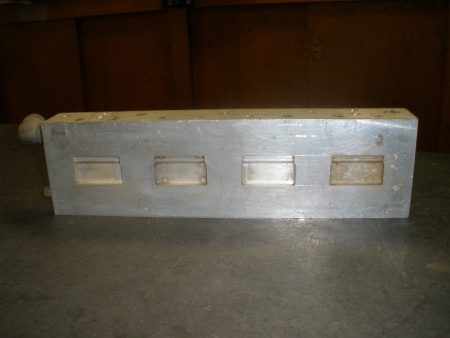 |
|
|